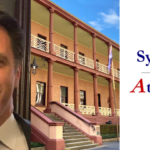Community Legal Centres in Crisis: An Interview with Australian Pro Bono Centre CEO John Corker

Pro bono legal work plays a vital role in the Australian legal system. It consists of lawyers providing legal services for free or at a significantly reduced cost, “with no expectation of a commercial return.”
The “justice gap” – made up of those who can’t afford a private lawyer but are ineligible for Legal Aid – is ever widening in Australia, as a result of repeated funding cuts, growing demand and stricter Legal Aid eligibility requirements.
Individuals who fall within this justice gap may seek pro bono legal services. Indeed, pro bono legal work often complements legal assistance provided by the Legal Aid Commission and community legal centres (CLCs).
Lawyers working on a pro bono basis may take on the cases of individuals or organisations whose issue is seen to be in the public interest, as well as assisting charities, non-profit organisations and people in need.
The looming funding cuts
The federal government is planning to make a massive funding cut to CLCs in this May’s budget. The amount of $35 million is set to be slashed from this sector between 2017 and 2020, which accounts for 30 percent of current federal funding.
CLCs provide frontline legal services to some of the most disadvantaged and marginalised people in society.
President of the Law Council of Australia Fiona McLeod has warned that these cuts, which will take effect in July, will lead to CLCs being forced to turn away a further 36,000 vulnerable people.
Ms McLeod said that this is on top of the 160,000 people that CLCs are already turning away on a yearly basis.
The Productivity Commission recommended a $200 million funding increase to the legal assistance sector nationwide in 2014, in order to keep up with demand. But rather than increasing funding, the government is going the other way.
Hope in NSW
Quiet unexpectedly, NSW attorney-general Mark Speakman announced last week that his government will be providing a $6 million rescue package to the state’s community legal service sector over the next two years.
This will provide for 30 solicitors to work in CLCs across the state to make up for the gap caused by the federal government’s funding cuts.
Managing principal solicitor at the Elizabeth Evatt Community Legal Centre Arlia Fleming told the ABC that the funding was welcomed, but there was still more needed for CLCs to continue offering services.
The impact on pro bono work
While it might be expected that the loss of CLCs’ legal services could increase the amount of pro bono legal work being carried out, the opposite is actually true.
As Ms McLeod pointed out in her speech at last month’s National Access to Justice and Pro Bono Conference in Adelaide, pro bono lawyers often rely on CLCs to refer appropriate work in their direction.
Sydney Criminal Lawyers® spoke with John Corker chief executive of the Australian Pro Bono Centre about pro bono legal work in Australia and the effect the funding cuts will have on the legal assistance sector as a whole.
Firstly, John, the Australian Pro Bono Centre was established back in June 2001 by the former Australian attorney-general Daryl Williams.
Can you tell us a little bit about what the centre actually does?
The centre is a national policy umbrella body, or a centre of excellence, about pro bono legal services. Its mission is to grow the extent of lawyers doing pro bono legal services.
It’s to support the legal profession to do more, and to do better, with their pro bono legal work. It’s essentially to embrace and grow the culture of pro bono legal work.
What would you say the importance of pro bono legal work is on the Australian scene?
It’s important to remember that it’s only a small part of what the whole legal assistance sector provides. But I do think that there’s some very important work done.
Australia’s lucky, in a sense, that it’s got quite a good international reputation for the development of its pro bono legal movement, in that it’s quite strategic about the type of work that it generally does.
It’s not a substitute, or in a very small part, it is a substitute for where government has failed to fund community legal centres and the Legal Aid Commission. It tends to do work that they might not otherwise do.
So a lot of civil legal work. It might do civil litigation. It might be discrimination cases, or it might be victim’s compensation cases. Or particular clinics, pro bono firms, or pro bono programs that firms have developed, things like the Homeless Persons’ Legal Clinic.
A lot of the work that’s being done at the moment, is in conjunction with community legal centres for asylum seekers and refugees.
So it’s interesting in terms of the range of work. A number of firms specialise in doing work for Aboriginal organisations and Aboriginal individuals, as a disadvantaged group. Other firms might work with women’s legal services, for victims of domestic violence.
It’s quite strategic in the areas that it decides to put its limited resources to help.
And the other side of it is, it’s interesting from a criminal point of view, a lot of the large firms just don’t have any criminal lawyers in them. They don’t have the expertise in criminal law. Very few of them have expertise in family law.
In a sense, they’ve also got to largely match where their expertise is. Where they can add value, with where the need is as well.
Pro bono work is growing in Australia. Your centre’s Fifth National Law Firm Pro Bono survey, found that for the financial year 2015-2016 the average full time lawyer does 34.8 hours of pro bono work a year, which was up by a 9.7 percent increase over the previous two financial years.
One of the key reasons, that you put this rise down to, is the increasing need for legal work provided to asylum seekers and refugees in this country.
Why would you say there is an increase in the amount of pro bono legal work needed by these people at present?
One of the key factors is what they call the “legacy caseload” of asylum seekers.
It’s that group of people that were resettled in Australia with temporary protection visas prior to July 2013, and are now being written to by the department to say, “If you want to stay in the country you’ve got to get an application back to us.” It’s sometimes within 14 days, sometimes 30 days.
And there’s something like 12,000 of these people that fall into that category. And so, there’s no government legal support to help people fill out what’s a very long and extensive form. The need is very clear and very palpable.
A number of firms have seen it as work that they can help with, and they think they should help with. That’s a particular aspect at the moment that’s caused a lot more demand.
The immigration story, legally, has changed a number of times as the government has changed the goal posts.
There was periods of time in the past, where there was a lot of review work being done for people on Manus Island and Christmas Island. But then the government closed the gate on that, and changed the law.
This is in many ways the latest chapter.
In your opinion, is there room for expansion of pro bono legal work in Australia? Are there enough resources available to meet a situation where there’s an increased need?
I think there always room for expansion. It’s not a bottomless resource by any means. In fact, it’s recognised very much as a limited resource.
But having said that, there are particular firms, and there are pockets within the legal profession, who don’t maybe respect that value of pro bono legal work in the same way that others do. And therefore, are not perhaps doing as much as they might otherwise be doing.
There is a relationship between unmet legal need and people feeling strongly about that unmet legal need within their communities and responding to it.
Whether it’s a barrister who sees a case and thinks, “This is just such a gross injustice, I have to do this case.” Or whether it’s a law firm who thinks, “There’s all these people in the community, who’ve got nowhere to turn to, that we need to help.”
It’s often even disasters – bushfires or floods – that will be the trigger for a lot of firms to get involved to do this work, because they’re helping members of their community.
So it’s always driven by that unmet legal need. But then beyond that, to sustain that, it’s a pro bono culture. And that takes time to develop within a firm, or a chamber, or even within a particular state. The legal profession is complex in terms of where people are. In different parts and sectors, there’s different attitudes.
And so there’s definitely capacity. But some of the best performers, and the ones that have been doing it for a long time, are close to capacity as well. They can’t do much more.
The federal government is set to cut funding to community legal centres by $35 million. Pro bono work can at times provides assistance to people who aren’t eligible for these types of services, but cannot afford a lawyer themselves.
What sort of an effect will these funding cuts have on the pro bono legal work sector?
Interestingly, pro bono, as I say, is only a small part of the legal assistance sector. But most of it is done in partnership or in conjunction with community legal centres and community organisations.
A lot of it requires that partnership. It requires the contact with the community, and the direct contact with people, who have problems for the law firms to much more easily help those people. It identifies where the need is and also facilitates the client relationship, and helps the organisation help the person.
A community legal centre itself, in order to leverage off the pro bono support that’s available needs a good coordinator. It needs a person and a good principal solicitor, who’s able to understand what’s available from those firms, develop those relationships and maintain them, and evaluate when it’s a good time to bring in a firm.
Any decrease in the capacity of a community legal centre to do that, will inevitably affect those relationships with pro bono firms. And our survey data shows, that it’s the mid-size firms that are probably more dependent on relationships with community centres, than the larger firms.
The larger firms have been doing it for a long time. They’ve got developed programs, and they know what they are doing more so.
Mid-sized firms have more recently developed pro bono programs. Our survey showed mid-sized firms receive up to 33 percent of their matters from community legal centres, so a third of their matters.
Any loss in capacity of CLCs is inevitably going to affect that stream of work. In a sense, it’s having a double-banger effect. Yes, it reduces the capacity of community legal centres, but it may also reduce the capacity of law firm pro bono programs, because it dries up a source of work and makes those relationships more difficult.
Providers of family violence services have been quite vocal about their opposition to the funding cuts for CLCs. Women who find themselves in these dangerous situations have very specific needs.
What do you think will be the major effects these funding cuts will have for them?
As we know, the NSW attorney announced last week that they’re going to cover the shortfall that the Commonwealth has created this year. So the funding is not going to be any different in NSW.
But for other states, community legal centres are very much a first line of support for the victims of family violence. And so, any decrease in their capacity to provide that support may well mean that someone can’t get legal support when they urgently need it. It’s as simple as that.
The Commonwealth government did find some extra money for community legal centres specifically to help with family violence, when there was that big push. When there was a policy announcement that the Commonwealth was going to take it seriously and there was some additional money found for community legal centres for that. And that helped.
But when you’re facing a cut right across the board, as a centre, then that will necessarily affect the ability of your operations to service as many clients as you previously did.
You used to be a solicitor at the Central Australian Aboriginal Legal Aid Service.
I did. Many, many years ago.
The rate of Indigenous incarceration is skyrocketing in this country.
Just how important is this service, and others like it, for Indigenous people? And what are the funding cuts going to mean for Aboriginal and Torres Strait Islander legal services?
The staff that work at Aboriginal legal services are the lowest paid of all lawyers in the legal assistance sector. In other words, they get paid less than they do at community legal centres and less than they do at Legal Aid. They’re the most vital services for Aboriginal people.
The Indigenous incarceration rate needs a lot more than bolstering of funding for Aboriginal legal services. They need a major rethink of the way in which we treat Aboriginal people in the justice system.
A problem is that a lot of that is state law. It’s to do with traffic law. It’s to do with criminal law. So a lot of the responsibility falls back to the state governments to deal with the issues.
But we were recently told at the National Access to Justice and Pro Bono Conference in Adelaide that if you release the people that are in their simply for driving offences that haven’t caused death, or for unpaid fines, you might reduce the population by somewhere between 40 to 60 percent.
Those people shouldn’t be in gaol. They should be let out of gaol. But the initiative has to come from the state governments.
It’s a disaster of national proportion. It’s a huge shame that we have such high Indigenous incarceration rates. And we’ve been trying to fix it for forty years, and we haven’t managed to do so. It needs a radical new approach.
The government’s been cutting funding to these types of services for years now. But this year’s cut is much greater, it accounts for 30 percent of the current funding.
Why do you think the federal government has chosen to make such a large cut to these frontline services?
It’s a historical thing. And a lot of it is, unfortunately, the politics between the Commonwealth attorney-general and the Shadow attorney-general – between George Brandis and Mark Dreyfus.
When Mark Dreyfus was attorney-general, he managed to find additional funding and raised the community legal centre funding, as best he could.
George Brandis has always taken the view that therefore he caused the problem. So that he couldn’t find the funding, or he hasn’t got the will to continue that high level of funding.
There’s just the most bitter politics between the two of them about whose fault it is. It’s ridiculous.
And lastly, John, looking into the future, if these funding cuts to community legal centres are a part of the next federal budget – as you’ve mentioned, NSW will be covered for the next two years – but overall, what sort of effects are we going to see on the Australian legal system?
Community legal centres are the frontline for people in need on the streets with problems. If we have any economic downturn, life is harder for people generally. And we’re seeing a growth in the gap between the rich and the poor in this country.
So we are likely to see more people needing assistance at that bottom end, as life is more pressured for people generally. They do have more problems. It’s more difficult to survive in society. That’s why more people are ending up in mental institutions and in gaols.
More now than ever, we need support for those frontline organisations, such as community legal centres.
John thanks very much for taking the time out to speak with us today. And best of luck with your work at the centre fostering Australia’s pro bono work sector.
No worries. Thank you.
Receive all of our articles weekly
Author

Paul Gregoire






